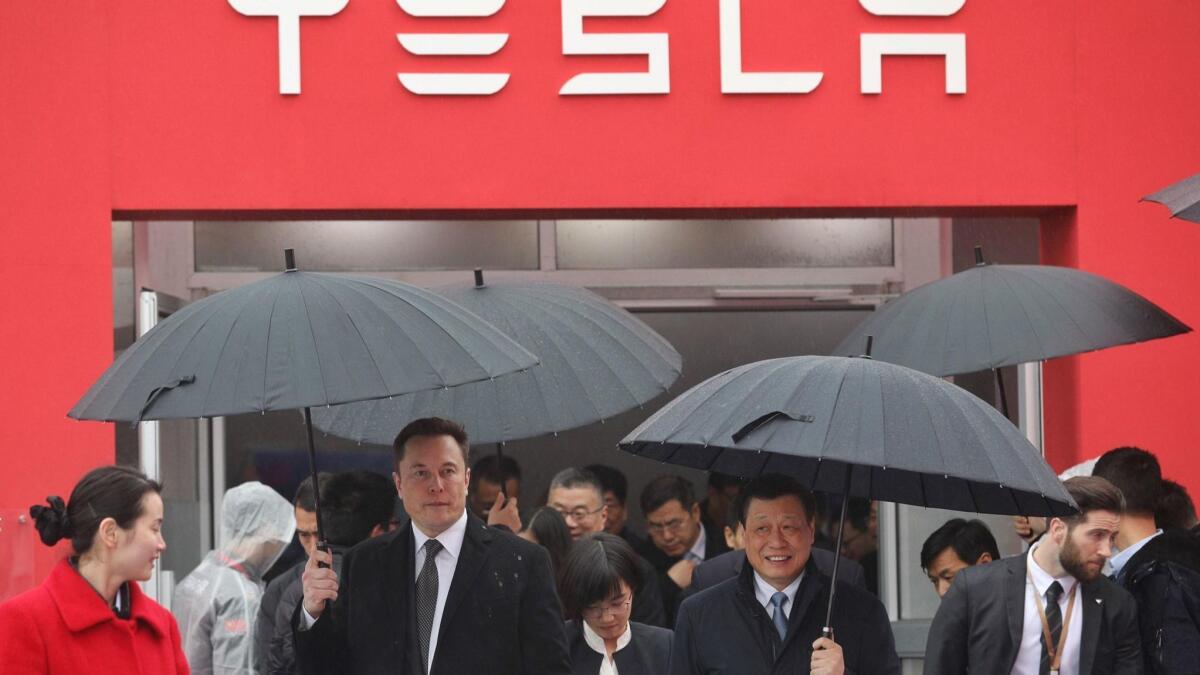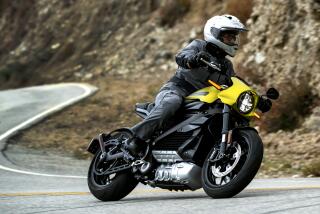Tesla secures up to $521 million in China bank loans for plant

- Share via
Tesla Inc. secured as much as $521 million in loans from Chinese banks to build a vehicle and battery factory in the country, putting the carmaker a step closer to producing Model 3 sedans at its first overseas plant.
The loans from China Construction Bank Corp., Agricultural Bank of China Ltd., Industrial & Commercial Bank of China Ltd. and Shanghai Pudong Development Bank Co. mature in March 2020, according to a regulatory filing. Tesla also amended a separate asset-backed credit agreement, increasing how much it can borrow by as much as $700 million.
Chief Executive Elon Musk estimated in January that Tesla will need roughly $500 million to get the plant built and production ramped up to 3,000 Model 3s a week. The total cost will be higher, and the company had said it planned to tap local banks for a majority of the funding.
The fresh borrowing follows Tesla’s largest-ever debt payment last week. Settling the $920-million convertible bond that matured March 1 taxed the company’s balance sheet, which had about $3.7 billion in cash and equivalents at year-end.
After years of negotiations with Chinese authorities to become the first foreign automaker to wholly own a manufacturing facility in the country, Tesla broke ground on the outskirts of Shanghai on Jan. 7. Musk has said the company plans to start battery and Model 3 production at the factory by the end of the year.
Tesla can now do so by borrowing at favorable rates. The yuan-denominated loans accrue interest at a rate equal to 90% of the one-year rate published by the People’s Bank of China. For dollar-denominated loans, the rate is 1% more than Libor.
Beginning local production in China is key for Tesla to reduce the costs of its cars in what is the world’s largest market for electric vehicles. Battery-powered autos have been a rare bright spot amid the broader market’s slowdown. Local manufacturing also will help the company sidestep any re-escalation of trade tensions between the U.S. and China.
More to Read
Inside the business of entertainment
The Wide Shot brings you news, analysis and insights on everything from streaming wars to production — and what it all means for the future.
You may occasionally receive promotional content from the Los Angeles Times.







